LA Galaxy’s Director of Girls’ DA Kevin Hartman
The LA Galaxy Director of the LA Galaxy Girls’ Academy is former goalkeeper Kevin Hartman — a champion in front of the net who earned international recognition during his 17 seasons of pro soccer. The excitement for this new U.S. Soccer Girls’ DA in Southern California is almost palpable and it is not a pay-to-play program. Here is an exclusive interview.

Youth Soccer News: The U.S. Soccer Development Academy Girls program kicks off soon and the focus on developing the next generation of FIFA World Cup stars — as well as fans of the beautiful game — is so intense that it seems almost tangible.
The youth soccer landscape is well prepared for the launch of the Girls’ DA and clubs all across America are organized to field the season.
Related News: ZACH WELLS ON LA GALAXY SOCCER CAMPS
There are 70 youth soccer clubs selected to participate in the prestigious U.S. Soccer Development Academy Girls Program — and the LA Galaxy is one of 14 clubs in the Southwest and the only Major League Soccer (MLS) club.
The LA Galaxy is seriously dedicated to developing its program and is investing $1 million to renovate their Girls’ Academy training field at StubHub Center. With new-generation AstroTurf replacing the existing synthetic rubber grounds at Field 7, and upgraded lighting structures — the changes should be ready for the inaugural season of the U.S. Soccer Girls’ Development Academy League only weeks away.
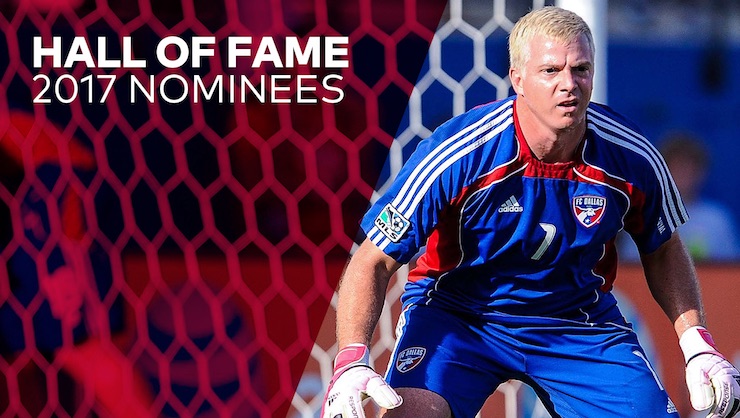
SoccerToday spoke with LA Galaxy Girls’ Academy Director Kevin Hartman to discover his goals and plans for building an amazing youth soccer program. Retired in 2013, Hartman’s legendary pro soccer career as a goalkeeper was stellar.
According to MLS, “Hartman is one of the most decorated players in Major League Soccer history and is the only player in MLS history to play and start over 400 regular season matches. He’s also the holder of the all-time record for shutouts with 112.”
Diane Scavuzzo: As the Director of the LA Galaxy Girls’ Academy, what is your goal?
Kevin Hartman: Our goal is to provide our athletes with an environment that is conducive to achieving all of their goals and aspirations within the game.
Also, we want to make sure that we are sending young women out into the world to be productive citizens that will impact their community in a positive way.
Finally, we want our girls to genuinely feel like a part of the LA Galaxy family and continue to return to Carson to help mentor our next generation of up and coming players.
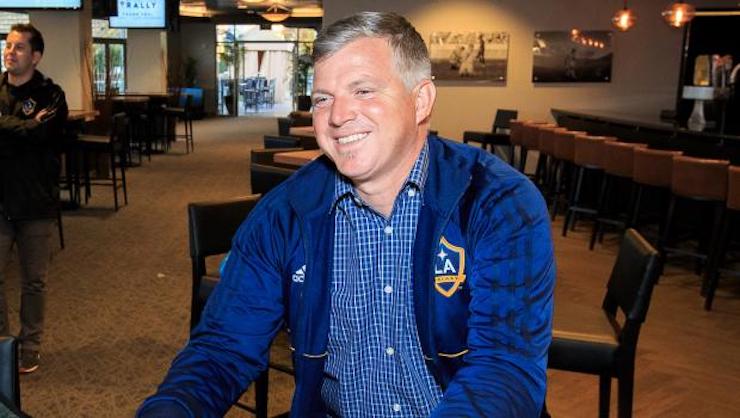
Diane Scavuzzo: With 17 years of playing experience in the MLS, what is the most valuable insight you’ve learned?
Kevin Hartman: While I’m a big believer in developing all of the individuals on our teams, I also understand how the players around me affected my performance and my experiences on the field. There’s a quote I believe in:
“If you want to go fast, go alone. If you want to go far, go together.”
I feel that epitomizes how we’ll find success in our inaugural season.
My other biggest take away from my playing days is the importance of being self-motivated.
As a staff, our responsibilities are to create an environment for the players to come to each day and work.
The two most important factors for us — which are 100% in the control of the players –are concentration and effort.
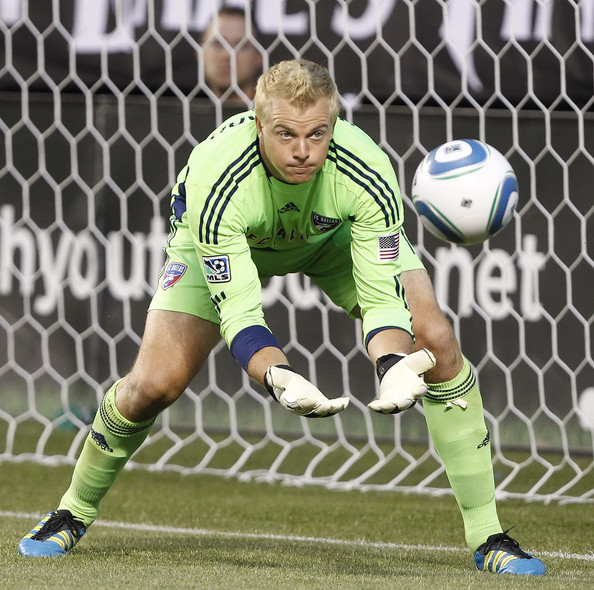
Diane Scavuzzo: How would you describe the best possible environment to inspire young female athletes?
Kevin Hartman: Top professionals are receiving support, resources, and information that just aren’t available at most youth clubs.
We’re fortunate to be part of an organization that has professional coaches, leadership coaches, sport science professionals, nutritionists, state of the art facilities, along with a regimented curriculum and individual development plans at no cost to our athletes.
Parents entrust their daughters to us so that we can help the athletes understand how to persevere and excel through the rigors/hurdles that the game will inherently present to them all.
Diane Scavuzzo: What inspires your passion?
Kevin Hartman: I fell in love with the game of soccer at a very young age and was fortunate to be able to play for 17 years professionally. As I wrapped up my playing career, it was easy to see how much I relished seeing young players take the information that I was giving them and using that to help shape their development pathway.
Using my experiences to help young players solve soccer problems and how those messages are both relayed and received is a dynamic part of my job that I absolutely love.
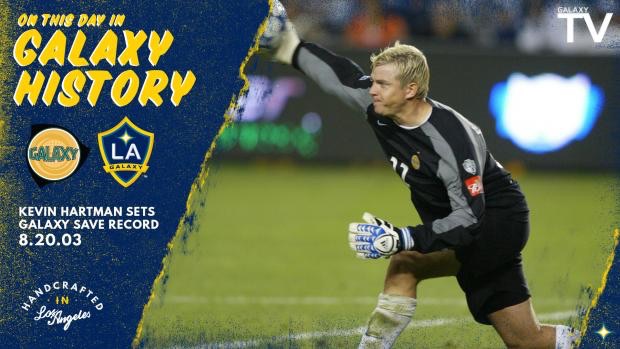
Diane Scavuzzo: How will the new Girls’ DA impact youth soccer?
Kevin Hartman: U.S. Soccer’s support the Girls’ Development Academy is a pleasure to see. While ECNL has done an excellent job of filling that space over the past decade or so, I’m excited to see how US Soccer’s investment in new Technical Staff on the Girls’ side allows for even more exponential growth.
Obviously, as someone who has been involved on the Boys’ side for a number of years, it’s exciting to see how the processes that have been implemented over the past decade will affect the female athletes.
Diane Scavuzzo: When did you first realize you wanted to be a professional soccer player?
Kevin Hartman: As a young player of about 13 years of age, I was extremely dedicated to the game and passionate about investing every free moment in improving my game so that I’d be prepared to play at an elite level.
As a young player in rural Virginia, I concentrated on the technical side of my game and used my move to California as a junior in high school to concentrate more on the tactics of playing top level soccer.
Through it all, my aspirations were to continue playing for as long as I could, at the highest level possible.
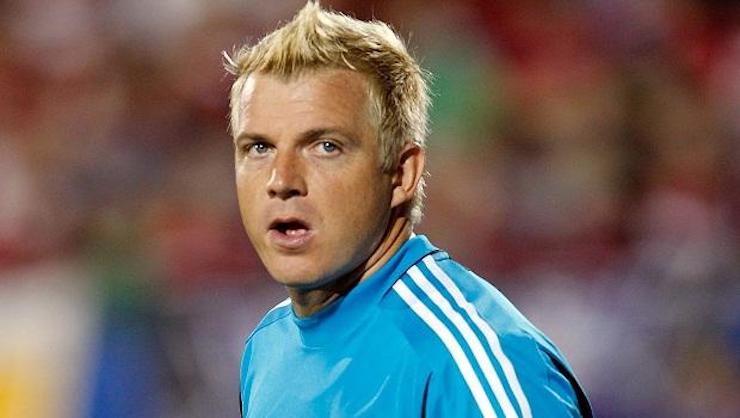
Diane Scavuzzo: Do you think it’s important for young female athletes to have women coaches?
Kevin Hartman: Having mentors and coaches that players can identify with is an important part of every young players’ development process.
I am always on the lookout for coaches that are able to get a reaction from the players that they are working with.
As we are developing our coaching staff, we’ll determine the best overall fit for our athletes. With that said, we’re fortunate to have female staff that interacts with our players regularly and are extremely fortunate to be part of a club that recognizes the importance of empowering females.
Next week, we’ll have the opportunity to introduce our inaugural Girls’ Development Academy teams at our MLS match as the LA Galaxy take on the Vancouver Whitecaps. While that’s exciting on its own, we’re thrilled to have it take place during the organization’s Women in Soccer night which takes place in tandem with our Women’s Leadership series.
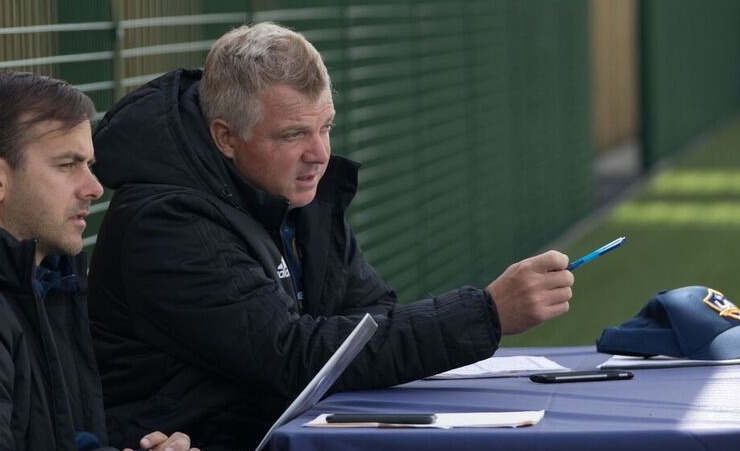
Diane Scavuzzo: How is the Galaxy Girls DA going to be different than other MLS and youth soccer clubs Academies?
Kevin Hartman: The LA Galaxy takes pride in being on the cutting edge of youth development.
While most MLS clubs have yet to start a Girls’ DA program, we were the first to do so.
We see this as a wonderful opportunity to establish an elite, centralized hub for girls’ development in Southern California, an area that has long been regarded as the top hotbed of soccer for girls in the United States.
By making the opportunity cost free, we’re providing an opportunity to players that may never have had access before.
Diane Scavuzzo: What do you look for in a player? What are the most important traits for success?
Kevin Hartman: We’re looking for technical players that are capable of competing at an elite level.
Physically, the players must be strong and physically conditioned to adapt to the conditions and demands that a match presents while also prepared to withstand the rigors of a 10-month season.
Additionally, we’re looking for game changers, players that can make pivotal plays in key moments.
 Diane Scavuzzo: What does it take to be a great goal keeper? Are goalkeepers different than field players? How important is communication?
Diane Scavuzzo: What does it take to be a great goal keeper? Are goalkeepers different than field players? How important is communication?
Kevin Hartman: Great goalkeepers have techniques that are consistently effective and can be easily adapted to the repeatable scenarios that happen in matches. They cope well when under pressure and recognize that their teammates are a huge factor in their personal success.
Goalkeepers communicate information from their experiences well and are lifelong learners.
Every conceded goal presents a goalkeeper with a lesson.
By remaining humble and identifying a more effective way to deal with a mishap, the next time a similar breakdown occurs, the result may be more favorable.
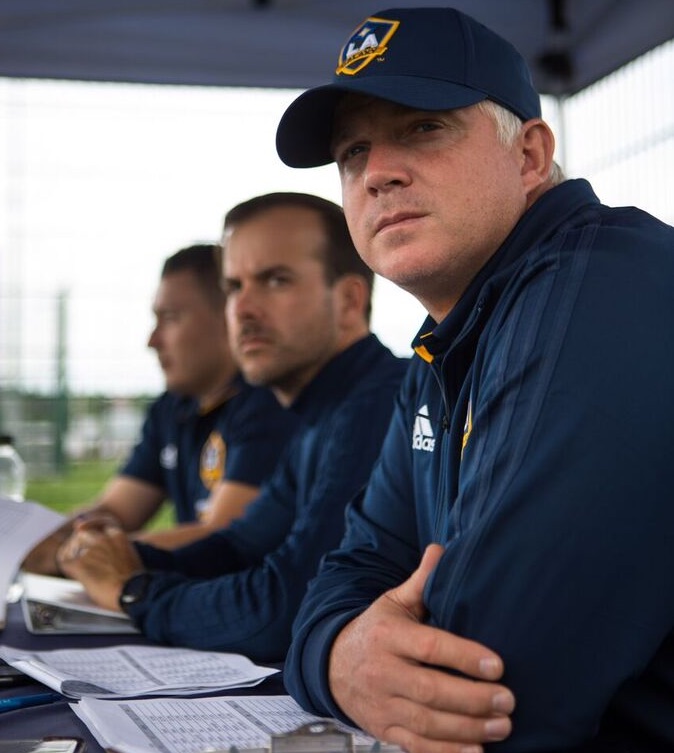
Diane Scavuzzo: Do you think the rest of the world is catching up to our women’s national team?
Kevin Hartman: Absolutely. The level of the women’s game internationally has improved significantly. While NCAA college programming has always been a huge asset, it’s critical that our players continue to grow to more fully comprehend the tactics of playing against international opposition.
I believe that by providing additional resources, such as the Development Academy, US Soccer is taking steps that will help our USWNT from multiple perspectives, including the depth of our scouted player pool.
Diane Scavuzzo: What percentage of youth players do you think will make it as a professional? What made your journey successful?
Kevin Hartman: By stating small numbers, I fear that I’ll dissuade players from going after it. With the right balance of environment, natural abilities, and massive intrinsic motivation, it’s possible.
I also feel that the number of professional soccer players that are developed shouldn’t be the only way that we judge success in the sport.
Above all, the lessons that I took from interacting with my teammates and that I learned from the wonderful coaches I was fortunate to play for were what I hold dearest. You certainly don’t need to be a pro to have those experiences.
Regarding my path personally, I loved and enjoyed the sport enough that I was willing to …
make sacrifices and overcome adversity that would have made most people give up.
I just couldn’t stand the thought of not playing anymore, so I evolved daily to get stronger, more agile, and technically/tactically more astute.





